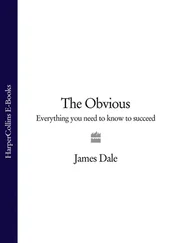
First published in 2010 by Collins
an imprint of HarperCollins Publishers Ltd. 1 London Bridge Street London SE1 9GF
www.harpercollins.co.uk
13 12 11 10 09
9 8 7 6 5 4 3 2 1
Text © Hugh Williams 2010
Hugh Williams asserts his moral right to be identified as the author of this work
A catalogue record for this book is available from the British Library
All rights reserved under International and Pan-American Copyright Conventions. By payment of the required fees, you have been granted the non-exclusive, non-transferable right to access and read the text of this ebook on-screen. No part of this text may be reproduced, transmitted, down-loaded, decompiled, reverse engineered, or stored in or introduced into any information storage and retrieval system, in any form or by any means, whether electronic or mechanical, now known or hereinafter invented, without the express written permission of HarperCollins ebooks.
HarperCollins Publishers has made every reasonable effort to ensure that any picture content and written content in this ebook has been included or removed in accordance with the contractual and technological constraints in operation at the time of publication
Source ISBN: 9780007326501
Ebook Edition © AUGUST 2010 ISBN: 9780007411115 Version: 2018-07-18
Cover
Title Page
Copyright
Introduction
1 Wealth
Introduction
CHAPTER 1 The Building of the Via Egnatia 146 BC
CHAPTER 2 The City of Chang’an 750 AD
CHAPTER 3 The Travels of Marco Polo 1271–95
CHAPTER 4 The Black Death 1348–50
CHAPTER 5 The Foundation of the Dutch East India Company 1602
CHAPTER 6 The Invention of the Flying Shuttle 1733
CHAPTER 7 The Foundation of Oil City, Pennsylvania 1859
CHAPTER 8 The Treaty of Versailles 1919
CHAPTER 9 The Model T Ford 1908
CHAPTER 10 The Credit Crunch 2007
2 Freedom
Introduction
CHAPTER 1 Spartacus 73 BC
CHAPTER 2 The Burning of Jan Hus 1415
CHAPTER 3 The American Declaration of Independence 1776
CHAPTER 4 The French Revolution 1789
CHAPTER 5 Ludwig van Beethoven’s Ninth Symphony 1824
CHAPTER 6 The Zulu War 1879
CHAPTER 7 The Russian Revolution 1917
CHAPTER 8 Mao Zedong and the People’s Republic of China 1949
Plates 1
CHAPTER 9 The Fall of the Berlin Wall 1989
CHAPTER 10 The Release of Nelson Mandela 1990
3 Religion
Introduction
CHAPTER 1 The Epic of Gilgamesh 2000 BC
CHAPTER 2 The Mahabharata 500–100 BC
CHAPTER 3 Plato 429–347 BC
CHAPTER 4 Buddha c.400 BC
CHAPTER 5 Confucius 551–479 BC
CHAPTER 6 The Crucifixion of Jesus 33 AD
CHAPTER 7 The Death of Mohammed 632 AD
CHAPTER 8 Martin Luther’s Ninety-Five Theses 1517
CHAPTER 9 Charles Darwin’s On the Origin of Species 1859
CHAPTER 10 9/11 2001
4 Conquest
Introduction
CHAPTER 1 Ozymandias (Rameses II) 1279 –C.1213 BC
Plates 2
CHAPTER 2 Alexander the Great 356–323 BC
CHAPTER 3 The Sack of Rome 410 AD
CHAPTER 4 The Coronation of Charlemagne 800 AD
CHAPTER 5 Chinggis Khan Becomes Sole Ruler of the Mongol People 1206
CHAPTER 6 The Fall of Constantinople 1453
CHAPTER 7 The Conquest of Mexico 1521
CHAPTER 8 The Exile of Napoleon Bonaparte to St Helena 1815
CHAPTER 9 The Indian Mutiny 1857
CHAPTER 10 Hiroshima 1945
5 Discovery
Introduction
CHAPTER 1 Archimedes of Syracuse 287–212 BC
CHAPTER 2 The Chinese Invention of Printing, seventh century AD
CHAPTER 3 Leonardo da Vinci 1452–1519
CHAPTER 4 Vasco da Gama Discovers a Sea Route to India 1498
CHAPTER 5 Sir Isaac Newton Publishes the Principia 1687
CHAPTER 6 Australia’s First Colony 1788
CHAPTER 7 John Logie Baird Demonstrates the First Moving Television Images 1926
CHAPTER 8 The Discovery of the Structure of DNA Helix 1953
CHAPTER 9 Apollo 11 Lands on the Moon 1969
CHAPTER 10 The Creation of the Worldwide Web 1990
Index
Acknowledgements
ALSO BY HUGH WILLIAMS
About the Publisher
The world in which we live is growing smaller, and shrinking. There is hardly a corner of it that has not at some time or another appeared on television in our homes. The activities of African, Asian and Middle Eastern politicians are often as familiar to us as those in our own country. The world is a bubble into which, thanks to the internet and other forms of mass communication, we peer at will. But where do we fit into the seething mass we see? What do we have in common with other people, places, cultures and ideas? What do they share with us?
One book cannot possibly answer all those questions but, with the help of history, it can provide a guide. History is one of the most important things that we possess: knowing about the past helps us manage the present and plan the future. And today we need a knowledge of history more than we have ever done before. Our world may be smaller but it is also more complex. We have become participants in even its most extreme activities. We watch the progress of wars on CNN or the BBC and, if we want, travel to its most dangerous places. I read a newspaper report recently about an elderly British pensioner who spends his time visiting Afghanistan, Iraq and North Pakistan. ‘You don’t think about roadside bombs, or being kidnapped,’ he said. ‘You know it happens, but you’re just too busy taking it all in.’ Exactly what he was taking in, the newspaper did not go on to say–presumably it was the experience of being there, of doing something unusual and rather dangerous. While we might admire the pluck and energy of someone taking his holidays in war zones, the fact that it happens at all is rather mystifying and confusing. Man was once an explorer: now he is just a tourist.
These extraordinary developments have helped create a world that is easy to see but difficult to understand. Discussions about world problems and their possible solutions are commonplace. People of influence think globally, in politics and economics, the environment and entertainment. At the same time we sometimes feel that our national identity is slipping away from us to be replaced by forces that are unfamiliar and uncertain. We would probably quite like to become citizens of the world, if only we knew what that meant. How should we balance national interests against global requirements? Where does our country end and the world begin?
The upheavals that surround us become inexplicable unless we can put them into some sort of context. That is one of the uses of history: to create a shape that helps make sense of the confusion in which we live. In 1919, H. G. Wells published The Outline of History in which he used his skill as a novelist to trace the history of mankind from prehistoric times to the present day. It was hugely popular. ‘The need for a common knowledge of the general facts of human history throughout the world,’ he wrote in the Introduction to a later edition, ‘has become very evident during the tragic happenings of the last few years.’ He might well have written exactly the same sentence were he to publish his book today. The world moves on and its glories and disasters move with it. We will always need help in understanding its history.
Читать дальше













